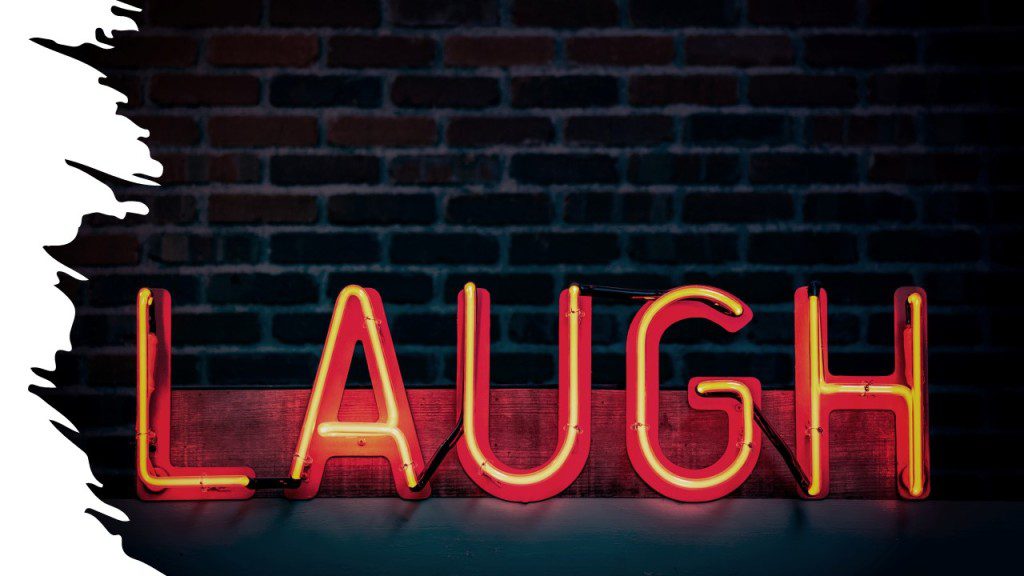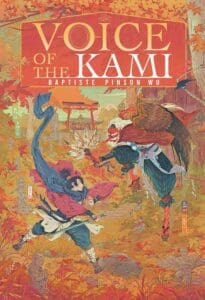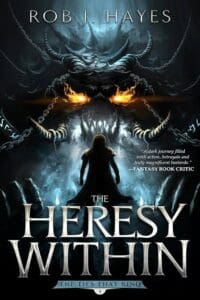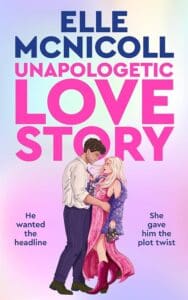
I’ve been writing all my life — as a student for grades, as a freelancer for money, and as an independent novelist for no money — and throughout all that time, I’ve always sought to inject some element of comedy into my work. I suspect whether or not I’m successful varies depending on the piece and the reader, but my goal with writing is always to amuse myself and, hopefully, amuse someone else along the way.
But humor is one of those things that’s especially hard to get right. I seem to recall reading once a long time ago that comedy is a harder craft to master than drama since so many people find so many different things funny. After all, when a character loses a loved one in a dramatic piece, it’s a good bet that the reader will feel some empathy and put themselves in their shoes. Who hasn’t feared that exact same thing?
Meanwhile, if that same character slips on a banana peel and falls into an open grave at the cemetery, you’ve probably got a fifty-fifty shot of getting a reader to chuckle. I mean, who evern slips on banana peels anymore? Has anyone actually seen an actual person slip on a banana peel? And who’s eating bananas at this cemetery and just tossing their garbage onto the ground? This whole “banana peel funeral” incident is raising a lot of questions, and frankly a reader might be too concerned with unraveling these mysteries than to fully enjoy the inherent comedy that comes when a person falls down.
The truth is that while we can all agree that people falling down is definitely hilarious, the same doesn’t hold true for every joke a writer might try to stuff into their work.
What’s so funny?
There are a lot of ways to make a joke, and all of them inflict some form of harm on someone — whether it be the self or the other. That’s because the line between comedy and tragedy is surprisingly thin. There’s an old quote that’s alternately attributed to the wonderful Mel Brooks and the very much not-wonderful Woody Allen that reads, “If I got a paper cut, that’s a tragedy. If you fell down an open manhole and died, that’s comedy.”
When I write, I try to keep my characters from falling into the sewers, but the truth behind that adage is real. The less you empathize with a character, the easier it is to inflict harm on them for a laugh — but that’s what makes writing a genuinely funny story with human, sympathetic characters so tricky. I want my readers to love my characters as much as I do, but I also want them to point at them and laugh. How do I manage to achieve both goals?
I rely on my favorite form of humor: the art of annoyance. While I could put my characters through the pain of constant physical injury (that’d be a lot of banana peels), and they could hurl painful insults at one another, I think the most gratifying way to get a laugh is by putting my characters through that all too relatable torture of being irritated by the people around them. To do that, I try to make my characters unique, idiosyncratic, and utterly aggravating to each other.
For instance, one of my main characters, Dash, is a washed-up space hero whose default setting is sarcasm. Naturally, his first mate is incapable of detecting sarcasm, while my other main character, Kenzie, worships the ground Dash walks on despite his obvious and numerous flaws. Once I put all these characters in the same place and gave them the task of having to solve mounting crises — like being pursued by cannibal space-pirates in a high-speed chase through the stars and then running out of gas — the comedy flowed naturally from there.
Creating characters who irritate each other can be a surprisingly fertile ground in which to grow humor, and one that allows me to find jokes without dehumanizing my characters, or the readers who may identify with them. I think this is the secret sauce of most successful comedy out there. Sure, it’s easy to shoot for laughs by deploying toilet humor or curse words — it’s not too hard to get a chuckle by peppering your dialogue with liberal amounts of F-bombs, S-bombs, and a few “buttholes” thrown in for good measure. However, while that kind of stuff is often pretty funny when deployed correctly, it can also limit the kinds of people who will be able to enjoy your writing. Not only that, it also feels like a shortcut to comedy, one that doesn’t require a writer to actually find genuinely funny character contrasts and conflicts.
For now, that’s my line — I try to keep everything as family friendly as possible without necessarily writing specifically for kids. It forces me to do a bit more mental gymnastics to figure out how I can make myself laugh without resorting to using the words that’d get me bleeped on network television. And it can certainly be a challenge to find that perfect mixture of characters and situations to keep things feeling good while staying on the right side of that line.
But I think it’s worth it. I love the weird little book I wrote, and I’m working on developing a sequel that maintains the same spirit of adventure marked with the comedy of annoyance. The big challenge now? Finding a way for my characters to keep annoying each other even though they’ve grown into better, less irritating people. I should probably get some banana peels and open graves ready.

About the Author
Brian P. Rubin has written articles and blogs for City Pages, Geek Magazine, Machinima’s Inside Gaming Daily, ReadWrite, Looper, and Grunge, among several others that both time and the Internet have forgotten. He even wrote questions for Trivial Pursuit, none of which actually wound up in the final game. So that’s cool. His first novel, Dim Stars: A Novel of Outer-Space Shenanigans, was published in 2020. He lives in Minneapolis, Minnesota, with his family.
Visit his website here.
Blurb
Kenzie Washington, fourteen-year-old girl genius, signs up for a two-week tour as a cadet on the spaceship of her idol, Captain Dash Drake. Too bad Dash, who once saved the galaxy from the evil Forgers, is a broke loser and much less than meets the eye.
But when an intergalactic evil appears and launches an attack, Dash, Kenzie, and the ship’s crew escape, making them the next target. On the run and low on gas, Dash and Kenzie encounter cannibal space-pirates, catastrophic equipment failure, and a cyborg who’s kind of a jerk.
Kenzie is determined to discover the bad guys’ secret plan. But for her to succeed, Dash needs to keep his brilliant, annoying cadet from getting killed …which is a lot harder than it sounds.
If you need more of a nudge to grab a copy, just read this take from Nicholas Eames (Kings of the Wyld, Bloody Rose):
Holy shit I LOVED this book.
The short: If you liked my book and “hilarious sci-fi adventure” sounds like something you’d enjoy, then you should read this too.
This book took me by surprise. The author contacted me via email last fall and asked if he could send me a copy. I said sure, but with the caveat that my TBR was out-of-control and I likely wouldn’t be able to read it anytime soon. To be honest, there are a ton of books on my shelf I’ll probably never get around to reading. I did, however, glance inside and read the first paragraph, and because that first paragraph was good I read the first chapter. It was good, and I emailed him to tell him so.
Then I put the book away for 8 months or so.
But I never forgot that first chapter. It was well written and funny, so I recently decided to pick it up again, read a little more, and see if I liked it.
Reader, I did. I really, really did. This book is so good. It’s hilarious–I laughed out loud countless times while reading it. It’s fast-paced in the best way possible–the end of every chapter pretty much compels you to start reading the next. It’s got a ton of really genuine heartfelt moments, and characters (so many characters) that are so endearing.
Rubin’s dialogue is especially fantastic. The voices are so damn…honest, and I really loved that.
If you’re looking for gritty space-opera, this ain’t it. There’s a ton of silliness here, but it never (in my opinion) makes the stakes seem less than dire, and I know that’s a tricky tightrope to walk.
If you’re a fan of Becky Chambers’ Wayfarers books, or Alex White’s Salvagers series, or Murderbot, or my books, there’s a good chance you’ll find something to enjoy here. I blew through this book faster than any book I’ve read in a long while, and if you decide to give it a shot I sincerely hope you enjoy it even half as much as I did.

![Dim Stars: A Novel of Outer-Space Shenanigans by [Brian P. Rubin]](https://fanfiaddict.com/wp-content/uploads/2021/08/41oEbLXYCaL.jpg)



Leave a Reply